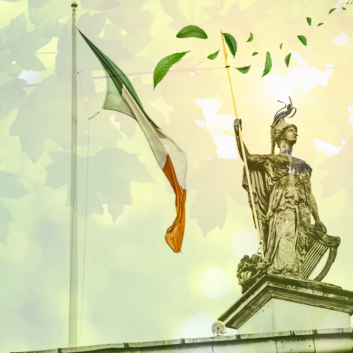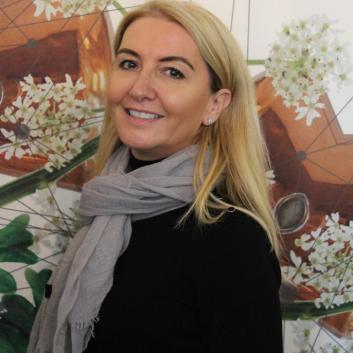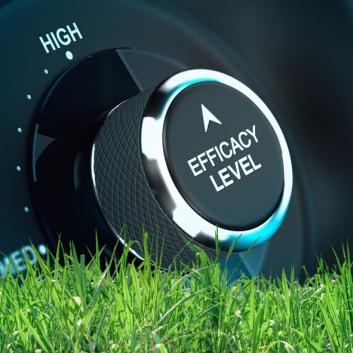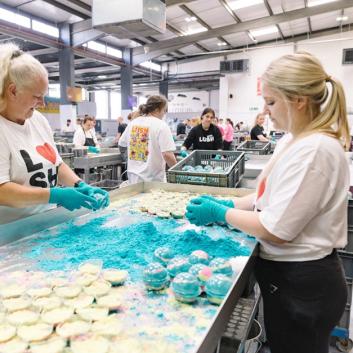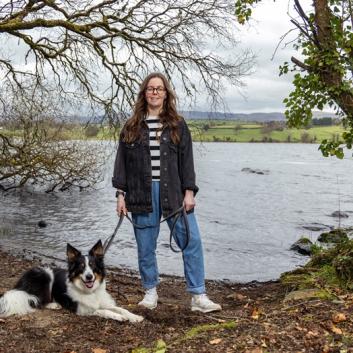Greenwashing or force for good? Redifining the role of marketing
This article provides a summary of the ‘Marketing as a force for good without greenwashing’ panel discussion from the annual Responsible Innovation Summit, held on 20-21 October, 2020. The session focused on ways to make the most out of your communication strategy to drive positive change and business growth and how to create a mix of values, transparency and sales.
How Has the Pandemic Influenced Marketing Trends?
The speakers were in agreement that the pandemic has influenced a number of marketing trends, and that will have a long-term impact on the industry.
Rosemary Walsh, Marketing Manager for Frank and Honest Gourmet Coffee Company, says, “One observation is, I don’t think we’ve ever been bombarded by as much information as we are now and I think it’s more focused when you’re at home and online.
Two things that I would highlight as a growing trend in marketing are authenticity and sustainability.
I think these factors will be so important for everyone working in marketing.” Brand Manager for Innocent Drinks Ireland, Laura O’Connell joins in, saying that, “Authenticity and the ability to cope with this situation goes beyond the usual thinking of creating good products; it’s about creating a good company which is walking the talk as well.
This year has been scary and confusing. People are looking for meaning, honesty and in a way having a human connection, even when it comes to brands.”
Eamonn Donlyn, CEO of Darwin and Goliath, says, “I’d say the general feeling is that we’ve all looked inward. This entire situation has been global, so everybody has had to deal with the same types of emotions in some form or fashion, even though everyone’s experience is different.”

“The pandemic is a looking glass into our humanity, it jolts us back to how we re-centre, what’s important to us and what’s important to a business but it has also given us a lot of hope and movement, and now we’ve seen how our system is not immovable and how change is not beyond us in any shape or form”. says Laura Costello, Senior Strategist at Purpose and Planet and THINKHOUSE marketing agency.
How Can We Use Marketing as a Force for Good?
Marketing can be used to achieve business goals only but also can be a powerful force to tackle social and environmental problems.
Laura O’Connell explains that Innocent is what is known as a BCorp and how this way of doing business could be the new ‘business as usual’.
Certified B Corporations are businesses that meet the highest standards of verified social and environmental performance, public transparency, and legal accountability to balance profit and purpose. B Corps are accelerating a global culture shift to redefine success in business and build a more inclusive and sustainable economy.
“In our board room at Innocent, we have two chairs, a green one and a blue one.
One represents the environment, one represents the community.
So, in every meeting, whether it's what are we going to order in for the office this week or if it’s a big marketing campaign, we consider those two people at the table.”
Laura says, adding that this consideration goes all the way from governance to hiring, practices and sustainability in their supply chains.

“One of the benefits and attractions of greenwashing is it’s almost a necessary evil in some regards because it gets the message out there and now, we see metrics that this is working so if the authenticity piece is then married up with greenwashing, greenwashing goes away.” Eamonn Dowlyn shares his opinion.
He feels it’s becoming a thing where consumers are not just buying the product itself but wanting to know who's behind the product, where it was produced, maybe not enough to the mass population yet but the trend is here. The actual risk to the business is doing nothing in this space.

Rosemary stresses that the role of marketing is to influence and drive awareness, and she believes that marketeers can be a force for good and that it is a really important responsibility to take on.
She acknowledges that it is tempting to go down the road of encouraging unnecessary consumption but actually having a platform to educate and influence positively is an incredible opportunity for businesses.
Laura Costello says, “What we’ve seen with COVID-19 is trends accelerating. We’ve seen purpose become more important and actually the business of sustainability expanding out.
It’s not just about the environment anymore, it’s about social justice, and the intersectionality of a lot of different issues”.
She feels marketing is a brilliant tool for change because all of the marketeer processes are wrapped up in how we create change,
so it’s actually an inspiring time in terms of looking at marketing as a tool for turning the tide.
Avoiding the Perception of Greenwashing
Eamonn feels there’s a risk right now for every marketer to do brand strategy around sustainability unless it’s clear that’s what your brand values are 100%.
He thinks for the companies that are nervous about that risk, and that they should stop trying to figure out the big brand strategy around sustainability.
Narrowing the focus on specific products as opposed to big brand ideas could be more a more effective step forward.
Rosemary Walsh says, “We’re all learning and it kind of goes with our name, but for me, my advice would be, to be honest. Most of us are on a journey.”
"The first thing that comes to my mind is focusing on one offer, one product, one plan, one thing that you have in mind. It might just be as honest as saying we’re not where we want to be right now, but this is what we plan.
We do this in Innocent, and we talk about our journey to sustainability, our strategy for the next few years. It doesn’t need to be this big massive, scary strategy.” Laura O’Connell adds.
“We wanted to be honest about our commitments to sustainability; how we source our coffee from Rainforest Alliance Certified Farms that benefit forests, communities and wildlife.
Initially, we discussed sending a film crew to South America to create an ad campaign that highlighted these efforts, but that wouldn’t be a very sustainable way to talk about sustainability.
Instead, we took the decision to fake the footage, shooting in garden centres and paddling pools instead of flying to South America, highlighting its sustainability message with a sustainably shot ad campaign. The feedback has been fantastic.
It communicates a serious message delivered with our trademark Frank and Honest humour.”
Communications Strategy
“I think there’s such value in creating a road map, you have your destination, and then the only thing I would add to that is to find your allies, build your crew and don’t feel like you have to do it alone.
I have learned so much through partnering with activist groups and with different clients, learning from one another. How different people approached it and coming from the agency side, it’s beneficial I think for our clients to have someone whose got their ear to the ground.” says Costello regarding her experiences working at a marketing agency.
In Laura O’Connell’s opinion,
we need to focus on what you want out of a campaign and let’s face it, marketing people want to get sales out of campaigns. Still, they also wish to create connections and loyal customers but also to communicate a bit of their brand.”
Rosemary Walsh says, “I think the number one biggest challenge in communicating our sustainability agenda and our brand strategy is around doing so in a way that will actually cut through with meaning to our consumers.”

Eamonn thinks that there was always this massive gap between what we’re selling and who is selling it.
He explains that in the end, you have to sell what you put on the market.
People might mix in values and sustainability to some degree, but they want quality and price first. One way to bridge the gap is to engage at a different level than sales and use other elements, like storytelling which can be extremely effective in marketing.
So, how do you get these elements in your offer?
Laura Costello adds that creativity is such a powerful thing that could be added to the sustainability story and even marketing climate change in creative ways.
One thing that comes to mind whenever you are planning a communications campaign is thinking, how does this work in the short-term but also how does this fit in with long-term strategies? How do we measure it as well?
What does success will look like in terms of numbers and metrics?”
Rosemary Walsh says, “I don’t really have a recipe as such, but for me, it’s more about sticking to your brand values and being very clear on what they are and what the brand stands for and indeed, what it doesn’t stand for.”
“Firstly, don’t look at your offering, your business or your brand and think okay, now how do I somehow inject some sustainability in and greenwashing and all those lovely buzz words into my campaign, into my product.
Go back to the DNA of who your business is and who your brand is and then make your consumers care about what you care about, and that’s where the marketing comes in.”
Laura O’Connell shares her opinion.
Driving Changes in Communications
Eamonn spoke about how he is working with e-commerce currently and talking to people about sustainability. His advice is not to be afraid to get your hands dirty. Learn about how the products are made and the story of the whole creation. These stories will help people to understand.
Laura Costello was impatient for change to happen and decided to do a course, called Reclaiming Agency. It was about how marketers can rise and how people can change the world. This course changed her view, not just about her work but on how she was living her life.
“My recipe would literally be people. You need to build up empathy in people. I think that means learning and building that awareness that this is not just something for the marketing manager to live every day, it’s for everyone.”
Costello says about integrating values into branding.
Marketing professionals are all experimenting and getting used to the idea of stepping into the territory of sustainability since we have no other option in order to keep creating value for the economy and society and to stay in business.









